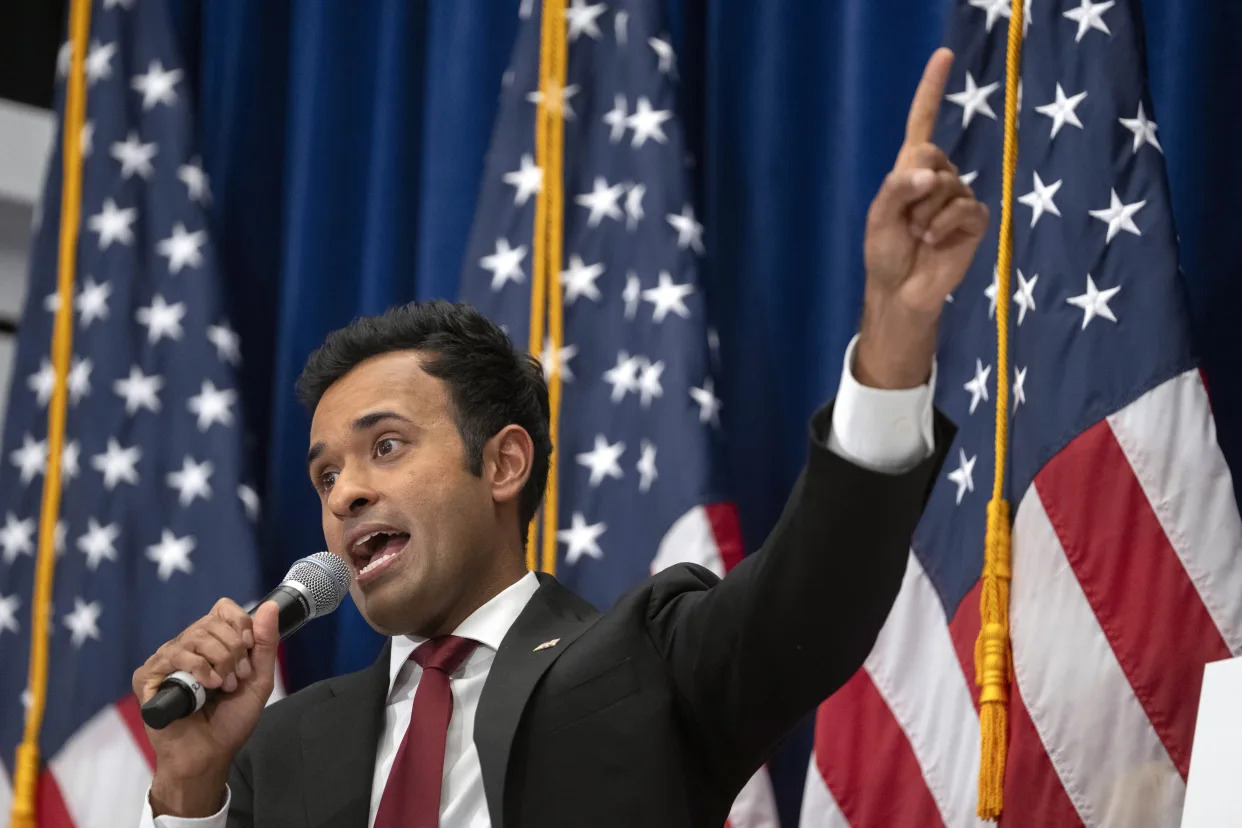It has long been a truism that the social rights and liberties which we have inherited from former generations and which we now exercise freely, have lost their original meaning for most people. As a rule one cherishes only that which one has attained through personal struggle, forgetting all too readily the historic significance of the achievements made by others in previous eras, by dint of costly sacrifices. Were this not the case, we could not account for the great periodic relapses which occur in human evolution and progress. All the social gains won in the past, from the most ancient days to the present, would then be drawn, if shown on a chart, on a constantly ascending line, unbroken by occasional reactions.
It is only when such dearly won rights have become the prey of an unbridled reaction that we begin to realize how precious they were to us, and how poignantly their loss affects us. The present epoch and the shattering events of the most fearful catastrophe in the history of all nations, have taught us a lesson in this respect which cannot be easily misunderstood, and which should spur us all to sober reflection on the subject.
There was a time when supposed revolutionaries embraced the notion that drastic repression must necessarily generate counter-pressure of like intensity among the people, thus accelerating the cause of general liberation. This delusion, which could spring only from blind dogmatism, is still very much in vogue and constitutes one of the greatest perils in the path of all social movements. Such a concept is not only basically false, with no historical justification; what is worse, it tends to pave the way for every phase of intellectual and social reaction. For it is difficult to assume that people who have allowed themselves to be robbed of any of their bitterly-fought-for rights and freedoms, will exhibit burning energy in battling to achieve full human rights.
The irrational idea that political and social liberties possess no value for us so long as the system under which we live has not been completely removed, is equivalent to acceptance of Lenin’s sophistical statement that “Freedom is merely a bourgeois prejudice.” Yet those who would make this point of view their own must, if they are to be consistent, regard as purposeless all the rights won through past revolutions and great popular movements; moreover, they would be obliged to embrace a new absolutism which, in its inevitable effects, is far worse than the monarchical absolutism of previous centuries.
None of the rights and liberties that we enjoy today in more or less democratic countries were ever granted to the peoples by their governments as a voluntary gift. Not even the most liberal regime confers rights and freedoms upon a nation on its own initiative; it does so only when the resistance of the people can no longer be ignored. This holds good not only for Europe* but all countries on all continents; and not merely for any given period but for all historical eras.
The revolutions in Switzerland and the Netherlands against the tyranny of the Austrian and Spanish dynasties respectively; the two English revolutions against absolute monarchy, the revolt of the American colonies against oppression by the mother country, the great French Revolution with its reverberations throughout Europe, the revolutionary events of 1848–49, the uprising of the Paris Commune in 1871 and the Cantonal Revolution in Spain in 1873, as well as the Russian Revolution during the First World War prior to the ascendancy of Bolshevism and its degeneration into a counter-revolution, the so-called Dictatorship of the Proletariat; the outbreak of the Spanish Civil War in 1936 and the awakening of the “colonial nations”~—all these events of historic scope have kept society in a state of internal ferment for centuries, creating the prerequisites for a new social evolution which, though frequently interrupted by reactionary relapses, yet serve to direct our lives along new paths. And these events likewise made the people of many nations increasingly aware of their elemental rights and zealous for preserving their own dignity, with the result that the horizon of our personal and collective rights and liberties has widened to a degree which would have been unthinkable under royal absolutism.
Without the French Revolution and its powerful reverberations in nearly all the countries of Europe, the outstanding mass movements of our time, the wide dissemination of democratic and socialistic ideas, and the development of the modern labor movement, the aspirations of which have left an indelible imprint upon history—none of these would have been possible; for it was the rights and freedoms established through that epic rising that prepared the soil upon which these new concepts could grow and flourish.
No one understood this fundamental truth better than Michael Bakunin when, in the stormy period of 1848–49, he sought to win over the Slavic nations of the East in favor of the revolution and to persuade them to join in an alliance with Western democracy, to smash the three remaining citadels of royalist absolutism in Europe—Russia, Austria, and Prussia. For he sensed rightly that the continuing existence of these last strongholds of unlimited despotism constituted the greatest existing danger to the development of freedom on that continent, and that these powers would constantly try to work toward a reversion to the days of the Holy Alliance. This attempt by Bakunin—ending in failure as it did —appears all the more significant since Marx and Engels themselves could think of nothing better than to advocate, in the Rheinische Zcilung, the extermination of all Slavic peoples except the Poles, even going so far as to deny to those nations generally any inner need for higher cultural attainment.
Human beings never resort to open resistance solely for the joy of it. Revolutions break out only when every other possible recourse has been exhausted, and when the blind inflexibility and mental myopia of the ruling classes leave no alternative. Revolutions create nothing new in themselves; they merely clear the path of obstacles and help bring to fruition already existing germs of new concepts. Every form of freedom gained through struggle possesses inestimable importance; it becomes a base for further progress, a stepping stone on the road to general emancipation. Even the most minor privilege and the meagerest freedom may have to be bought at the cost of heavy sacrifice; and to discard such treasure without a fight means playing into the hands of reaction and perhaps giving a fresh lease of life to the barbarism of times long past.
Even in democratic countries few individuals remember what such men as Chaptal, Tocqueville, Gournay, Turgot, Goyot, Buret, and so many others have taught those who would read or listen about the economic and social conditions of the old absolutist regime; indeed, these are things of which the predominant majority of our contemporaries have but the faintest idea. This ignorance of the era which preceded the French Revolution is largely responsible for the relative unconcern with which so many persons today view the overhanging menace of the totalitarian state and for the ease with which others accept the tenets of the new absolutism as the only alternative to the prevailing social chaos.
The system of royal absolutism constituted an hierarchy organized unto the minutest detail, and one to which every concept of personal freedom and equal rights was completely alien. Every individual was assigned his niche in society, a decision in which he had no voice at all. Only the thin stratum of the ruling classes enjoyed extensive privileges, while the broad masses of people had no rights whatever. The overwhelming majority of the rural population was bound to the soil which, as serfs, the living property of the feudal barons, they were never permitted to leave. Any attempt to escape from that servitude through flight was punished by savage corporal punishment or death.
This system, which held most of Europe in its grip until the outbreak of the French Revolution, not only deprived the mass of subjects of every form of human right, but through an endless and exacting supervision of every phase of human activity, it stifled all economic and social progress. A veritable mountain of royal decrees, ordinances, and regulations, precluded every possibility of improving or accelerating the process of production through new inventions or other innovations.
Rigid working methods were prescribed for every artisan, and no deviation from these was tolerated. State commissions fixed not only the length and width of the cloth, but also the number of threads which had to be woven into the fabric. The tailor was told exactly how many stitches he could make in seeing a sleeve into a coat; the shoemaker how many stitches were required to sew a sole on a boot. Hatmakers in France were obliged to comply with more than sixty different regulations in the manufacture of a single hat. Dyers were permitted to employ only officially specified woods in dyeing fabrics. Every manufacturer had to abide by regulations of this sort, with the result that in France, as well as in most other European countries, production methods at the outbreak of the Revolution differed little from those in effect a century before.
Spies were planted in every workshop. An army of officials maintained a close surveillance over factories, looking with eagle eyes for the slightest breach of the rules. All products which deviated in the slightest degree from the prescribed norm were confiscated or destroyed and stiff penalties were imposed on the offenders. In many instances the worker thus found “guilty” suffered the mutilation of his hands, and in others a brand was burnt into his face with an iron. In eases of severe infractions a culprit might be delivered over to the hangman and his workshop and equipment destroyed.
Very often additional ordinances were enacted merely for the purpose of extorting money from the guild master. The regulations were so sweeping and so preposterous that, even with the best of will, complete compliance was impossible. In such contingencies there was no recourse for the guild masters but to pay heavy bribes for the rescinding of especially oppressive ordinances. Extortions of this nature were by no means exceptional; on the contrary, they became increasingly common as the rulers avidly seized upon every conceivable device to fill the coffers of their treasuries, drained by years of profligate spending by the royal courts.
When Louis Blanc and various other historians of the Great Revolution relate that, after the abolition of this colossal burden of idiotic decrees, ordinances, arid regulations, men felt as if they had been liberated from some mammoth prison, they simply are stating a fact. Only through complete elimination of those endless obstructions was it made possible to bring about a radical transformation of economic and social conditions. This transformation having come, a fertile soil was created for hundreds of useful inventions which formerly never would have seen the light of day. And incidentally, that fact provides irrefutable proof of the fallacy of the Marxian precept that the form of the State is determined by the mode of production in existence at a given time. Actually it was not the conditions of production which gave rise to royal absolutism; rather, it was the system of absolutism which for more than two centuries forcibly prevented any improvement in the methods of production and thus paralyzed any tendency toward their modernization.
With the disappearance of the feudal order, however, not only were the possibilities of improvement in social production altered and enhanced, but the political and social institutions of various nations changed to nil extent that one scarcely could have imagined prior to that turning point. Feudal bondage, which hitherto had shackled men with iron fetters to the soil, and had imposed on each a mandatory occupation, was replaced by the right of freedom of movement, choice of domicile ,and the privilege of choosing the occupation for which one thought himself best fitted.
The draconic punishments meted out for even slight disregard for regulations, frequently after confessions forced from the victims through torture, were supplanted by new concepts of justice which stemmed from the Revolution and which were more in accord with the dictates of humanity. Once it had been possible for members of the privileged classes to have their enemies buried alive in one of Europe’s countless bastilles by the simple device of preparing a Le.llre de Cachet. But now the lately won civil rights guaranteed that every accused person be arraigned before a judge within a specified period of time. He had to be informed of the charge against him, and he had to be given the right of counsel.
To us, who perhaps have never met with any different type of administration of justice, these safeguards may appear commonplace; yet there was a time when they did not exist, and it was only through prodigious sacrifices that they came into being.
Along with these human rights there evolved, gradually and by virtue of incessant struggle, the right to freedom of expression in speech and writing, freedom of assemblage, and the right to organize, as well as other gains. One need but recall in this connection the severe sacrifices that were necessary to bring about abolition of the hated institution of censorship, or the bitter conflict that the workers in England and France had to wage for the right to organize, to appreciate properly these rights. It is true that all such rights and freedoms have meaning only so long as they remain alive in the consciousness of the people, and so long as people arc ready to defend them against any reaction. But this very fact should impel us all the more to uphold them and to keep a sense of their vital importance fresh in the public mind.
There are individuals who consider themselves extremely radical when they assert that such rights already have lost their significance, if for no other reason than that they have been embodied in the constitutions of various nations; that, at the most, they are trivial accomplishments which have not brought us a single step nearer to social emancipation. Whoever holds that opinion is rather hopeless; for thus he demonstrates that he has learned nothing from the devastating experiences of the recent past.
The point to be stressed here is not just that these rights are incorporated in constitutions, but rather that governments were compelled to guarantee them as a result of pressure from the masses. If such forms of freedom were in reality so meaningless, reactionaries all over the world hardly would have gone to the trouble to abolish or curtail them whenever they had opportunity, as we have seen them do in so many European countries in the last decade.
But to dismiss all political and social betterment as insignificant is absurd, if for no other reason than because we would then have to brand as worthless all attempts on the part of the laboring masses to improve their conditions within the existing social order. All intelligent individuals realize that the basic social problem cannot be solved solely with the usual battles for higher wages, important though these battles may be as a means toward an immediate essential economic end. If the above mentioned argument were true, there would be little point in combating the new feudalism of totalitarian states, since a few rights more or less would not really matter.
Everything that Socialists of various orientations have affirmed in the past about the shortcomings of the capitalistic economic order is still true today, and will remain true so long as it operates to the benefit of small minorities instead of furthering the welfare of all members of society. But this docs not alter the fact that social movements which aim to do away with prevailing social and economic evils, can flourish only in a climate of intellectual freedom. They must be able to propagate their ideas and to create organizations or institutions which help to promote the liberation of humanity. Hence what is needed are more rights, not fewer; not lesser but greater freedoms, if we want to get closer to the goal of social emancipation.
Even the least of the freedoms won as a result of constant striving, sets up a milestone on the road to liberation of mankind, and by the same token the loss of the slightest social gain represents a setback for our cause. Certainly one will not achieve liberty for all by forfeiting without a struggle every personal freedom. Rights and liberties can be lost on a small scale just as they are often won in limited measure. For once the first step on this ominous path has been taken, all other rights and freedoms are exposed to the same danger. If we make the smallest concession to reaction, we need not be surprised if in time we lose the priceless heritage which others, through suffering and sacrifice, have won for us.
If any further proof be needed to corroborate this contention, it amply provided by the history of the last decade. That should suffice to open the eyes of anyone not afflicted with incurable intellectual blindness. The new absolutism is casting its menacing shadow today over all cultural and social gains achieved by mankind after centuries of travail. In Soviet Russia and in most Eastern countries dominated by its military might, the right of a man to live in a locality of his own choosing, or to enter the occupation which seems most promising to him, has been cast upon the scrapheap of passing time. The governmental bureaucracy allots to each individual an arbitrary place for his productive activity, and this he may abandon only upon express permission or command of the authorities. A privilege granted to the lowliest peasant after the abolition of serfdom under the Tsars, is no longer extended to any worker in the vaunted Red Fatherland of the Proletariat.
Prior to the Stalinist regime, not a single capitalist state had dared to set up concentration camps, where under the most rigorous conditions every worker is assigned his daily production quota, which he must fulfill under pain of brutal penalties akin to those inflicted upon the galley slaves of the Caesarian era. But in the Russia of Stalin and in the lands enchained by his tyranny the establishment of such slave labor camps has become a commonplace event, and millions of helpless human beings are its victims.
Simultaneously with this relapse into the darkest ages of feudalism came the suppression of all social and political rights. All organs for the communication of ideas, the press, the radio, the theatre, motion pictures, and public gatherings generally, fell under the control of an iron censorship, and a ruthless police system impervious to even the slightest appeal of humanity took command. The trade unions, shorn of the right to strike and of all other effective rights, were converted into tools of the all-powerful State and now merely serve the purpose of giving moral sanction to the enormities of an unbounded economic and political enslavement.
The brutal suppression of all social movements, from the Mensheviks and Anarchists to the so-called Trotskyism, within the Soviet confines; the employment of torture to extort confessions from persons guilty or innocent of wrong-doing, and the cynical mockery of all concepts of justice so glaringly evident in the notorious Moscow “purge” trials, the like of which Tsarist Russia could not duplicate; the. re-introduction of the infamous practice of taking hostages, which makes even the families and friends of individuals allegedly imperiling the safety of the State liable to arrest and punishment; the deportation of the population of whole villages to remote areas in Siberia—these, plus a conspicuous array of other punitive measures borrowed from the barbarism of long vanished epochs, characterize a system which, according to its own figures, possesses barely 8,000,000 organized adherents in Russia, and yet undertakes to reduce more than 200,000.000 people to servitude under its inhuman regime of violence.
And that is not all! Under this new absolutism there exists neither freedom of thought in science nor any creative autonomy in art, the representatives of which are likewise at the mercy of the relentless dictatorship of the Communist Party machine. Not a month passes but that practitioners of the arts and sciences are arraigned before the bar of this new State Church for deviation from the prescribed line and denounced publicly as heretics. The very fact that virtually all such accused persons —including composers, painters, architects, economists, historians, anthropologists, construction engineers, and chemists—have bent the knee before the new powers-that-be, publicly confessed their “aberrations/’ and promised to mend their ways, is further evidence of the general degradation of character which becomes inevitable under a totalitarian regime.
While monarchical absolutism prevailed, it was still possible for individuals like Cervantes, Goya, Rabelais, Diderot, Voltaire, Milton, Lessittg, and hundreds of other men of genius to express themselves. In Stalin’s Russia such latitude is unthinkable. During the reign of Tsar Nikolai II, Tolstoi could still venture to publish his famous declaration against the war with Japan in the London Times, and thus have the whole civilized world as a sounding board. The Russian Government dared not touch a hair of his head. One might well ask what would have happened to Tolstoi if he had lived under the reign of Stalin. To ask this question is to answer it; and the only possible answer to this hypothetical query will show clearly to what extent millions of people have lost their basic human rights. Millions of others will inexorably suffer the same fate unless they take an indomitable stand in all countries for the defense of rights and freedoms won at so bitter a cost!
Let us not deceive ourselves. This is the true nature of the new absolutism which, under the pretext of social emancipation, is today threatening to smother all freedom, all human dignity and hope for a brighter future, in order to plunge the world into a modern Dark Age the duration of which no one can predict. The peril is all the greater because in every country a fanatical and unprincipled group of disciples is at the disposal of these latter-day tyrants, unconditionally obedient to their every command. Consciously so far as the leaders are concerned, and unconsciously in the case of the intellectually backward masses whom they exploit for evil purposes, these disciples serve the interests of the Red Imperialism while paving the way for dictatorship in their own countries.
At the same time this new despotism tends to strengthen reaction in every country, with the result that the imperiled nations proceed to do away with long-established rights and freedoms with the ready excuse that such action is the only efficacious means of cutting the ground from under Russian espionage within their borders. The steady deterioration of civil liberties in the “democratic’* countries is a clear indication of the danger we face of being contaminated by totalitarian reaction on our own soil.
The urgent call of the hour is for a decisive collaboration among persons of good will in all strata of the population, who reject dictatorship in every form and guise,’ and who are prepared to defend their rights and freedoms to the last ditch. This is the only way to re-direct social evolution into new paths and to build a solid and straight road to universal emancipation. Above all, however, we must strive to re-awaken among the masses a strong desire for liberty and a sense of human dignity, and to spur them in their resistance against every threat to their inherent rights. Such an emphatic repudiation of reaction in all forms and phases is at the same time the only means of averting a new World War and of creating an understanding among peoples everywhere on earth on the basis of mutual aid and federalist principles. In a word, the power politics of governments can be frustrated only through resistance by the masses themselves.
Unfortunately there arc still a great many complacent spirits who ostensibly believe that the sacrifice of social rights and liberties is essential to the achievement of economic security for everyone. Such a point of view is the most objectionable of all since it implies abrogation of all human dignity. Not only is this assumption thoroughly fallacious, as amply demonstrated by the wretched economic conditions of the Russian peasants and industrial workers; what is worse, it leads toward utter disintegration of character.
Let those who are of that mind reflect upon Benjamin Franklin’s maxim: “He who is prepared to sacrifice his freedom for security deserves neither freedom nor security.”
For us, however, the old saying still holds good: Socialism will be free or it will not be at all!
Rudolf Rocker | The Anarchist Library

















